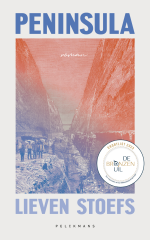View all filters
Clear

Time After Time
Explore or alter the physics, the histories and the inevitability of time
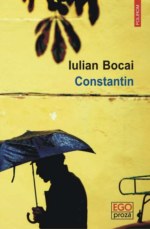
Константин
Rečnik zatvorenika
Very important person
Il tempo è un cerchio
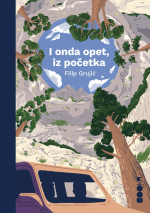
In potem spet, od začetka
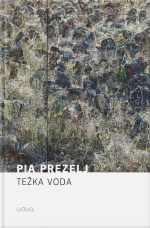
Ciężka woda

Meine Mutter hat Blumen gezüchtet (I presupposti non contano)

Ovce so cele

Constantin. Un portret
Constantin este povestea experienței lui Mihai, un tînăr student venit din provincie la București, acasă la cel care i-a închiriat o cameră pe perioada studiilor: Toader Constantin. În apartamentul dărăpănat al acestuia se petrec o serie de întîmplări tragicomice, ai căror protagoniști sînt chiriașii săi, oameni de tot felul, cu povești de viață dintre cele mai diferite și mai interesante, care trăiesc într-un București poate prea pragmatic și uneori chiar ostil. Constantin este el însuși o poveste, care nu se lasă însă descoperită prea ușor, nici chiar de „bunul chiriaș” Mihai. O carte despre Bucureștiul real, despre oamenii care îl populează și, în cele din urmă, despre viață așa cum e ea, descrisă cu un fin spirit de observație și simț psihologic.

Iarna
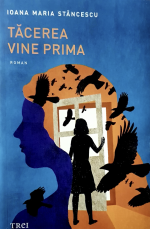
Першою приходить тиша
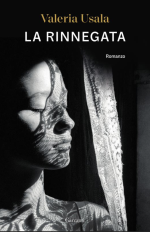
La rinnegata
A story of three generations of women, their courage and search for independence in the face of superstition and prejudice, in the spirit of Natalia Ginzburg and Elena Ferrante. In this striking debut, based on a true story, Valeria Usala bears witness to an age-old story of violence against women and takes us into the heart of rural Sardinia, where superstitions and cruelty coexist with the joys and companionship of a tight-knit community.
Teresa runs a shop and a tavern. But not even the family she has created with the man she loves can protect her from the malicious gossip of jealous locals, who are threatened by her independence. Her own mother, Maria, was made an outcast, and now Teresa is in turn forsaken by the villagers. Will she pay for her success with her life? Is she like a character in Greek tragedy, whose destiny is inevitable? A story that gives voice to the forgotten women of Sardinia—and to the one of women everywhere.
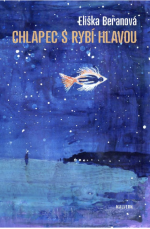
El chico con cabeza de pez
Nekoliko meseci kasnije
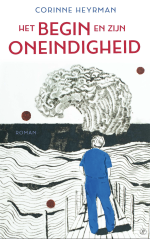
Het begin en zijn oneindigheid

No quiero ser un perro
Trilogie toulavého pohlaví
Sommige dingen veranderen nooit

Tăcerea vine prima (Silence comes first)
Tăcerea vine prima vorbeşte despre trauma unei familii contemporane şi despre blocajele de comunicare dintre mai multe generații de femei. Atunci când tăcerea se instalează într-o familie, toate comportamentele sunt creatoare de traume. Singura soluție pare să fie depășirea fricii și deschiderea rănilor.
Subiectul principal îl reprezintă relația complicată a Dorei, pe de o parte cu mama sa intruzivă și veșnic nemulțumită, pe de altă parte cu fiica adolescentă care începe să-și ceară dreptul la independență. Crescută într-o familie în care femeile și bărbații au fost dintotdeauna într-un raport de forță, copiii au acoperit goluri și dureri, fericirea personală n-a părut necesară, mamele au îmbătrânit urât, iar tații, în tăcere, Dora preferă fantasma realității. Într-un moment de curaj, ea intră într-o relație online cu Toma. Totuși, chiar și după ce ajunge la Braşov, acolo unde locuieşte bărbatul, spaima de a nu fi dezamăgită o face să se întoarcă acasă, fără ca întâlnirea să aibă loc. Când însă, Toma vine în București și o sună, Dora este nevoită să ia o decizie. Nu înainte de a rupe tăcerea şi a da cărţile pe faţă, într-o discuţie cu mama ei.
“Silence Comes First" explores the trauma within a contemporary family and the communication barriers between multiple generations of women. When silence takes root in a family, every behavior becomes a source of trauma. The only solution seems to be overcoming fear and confronting old wounds.
The central theme is on one hand Dora's complicated relationship with her intrusive and perpetually dissatisfied mother, and on the other the dynamic with her teenage daughter, who is beginning to assert her right to independence. Raised in a family where women and men were always engaged in a power struggle, where children filled voids and covered up pain, Dora searches for an escape. After a childhood where personal happiness seemed unnecessary, where mothers aged poorly, and fathers remained silent, Dora prefers the fantasy over reality. In a moment of courage, she enters an online relationship with Toma. However, even after she travels to Brașov, where Toma lives, her fear of disappointment drives her to return home without meeting him. But when Toma comes to Bucharest and calls her, Dora is forced to make a decision. However, she can only do that after breaking the silence and laying all the cards on the table in a conversation with her mother.
